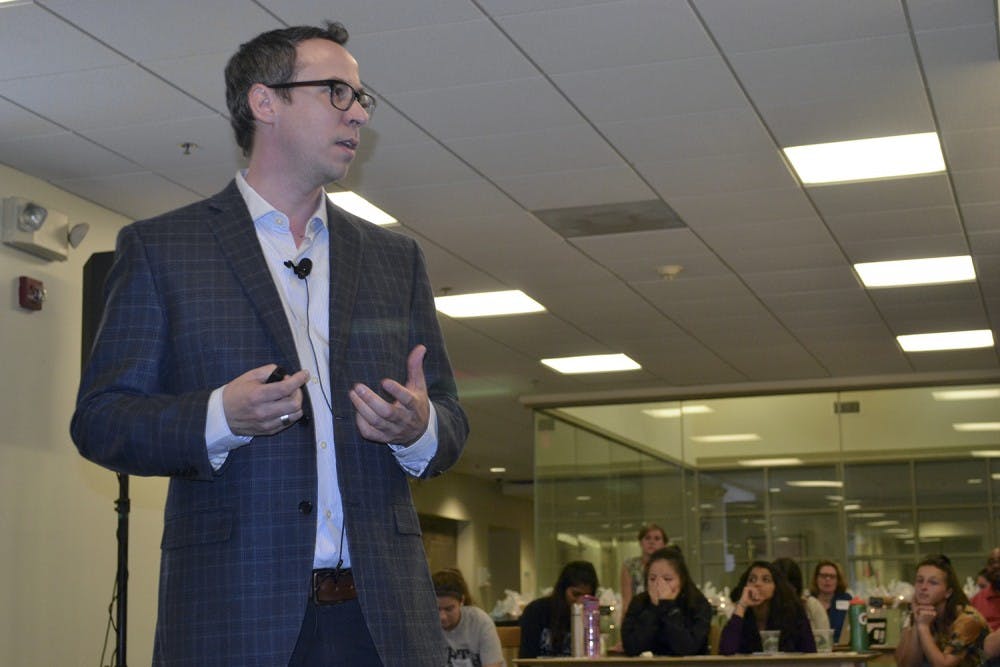The event began with Rumay Alexander, the interim chief diversity officer, reminding everyone why the conversations are held and why the evening’s topic is important.
“Sometimes we create implicit biases by the language we use or the phrases we use or the rules or the unwritten rules, and so the whole idea is that if we would bring to consciousness — if we could bring to life some of the implicit pieces, the better we will be at making strategic decisions, hiring practices, recruitment, the better able we are to retain talent and create an environment where they can flourish,” she said.
Payne, who has studied and taught about implicit bias for 15 years and facilitated Wednesday’s conversation, said in the past five years the term implicit bias has become more widespread, but understanding has not spread at the same rate.
“We have lots of misunderstanding and misconceptions about what implicit bias is,” Payne said. “When people talk about implicit bias, sometimes two people will use the word to mean two very different things.”
The goal of the conversation was to define implicit bias and how it can affect everyday decisions and behaviors. Before giving a definition, Payne lead a series of activities to show how the brain forms connections based on previous experience.
One of the tasks involved looking at a series of images and then completing a word. The first set was a collection of dogs followed by the letters “ter” with the complete word being terrier. The second set of images was of several Muslim men. Once again the letters were “ter” and while no one said it out loud, Payne said it was clear that the word people were thinking was “terrorist”.
Payne said the activity shows how our brains categorize things to draw connections. He said we live in a society that associates Muslim men with terrorism so our brain categorizes the two things together.
Payne presented statistics and studies showing how implicit bias affects all aspects of life from hiring practices to how we perceive children playing. To prove no one is immune he directed an implicit bias test, which involved relating traditionally White or African-American names with words associated with safety or danger.



